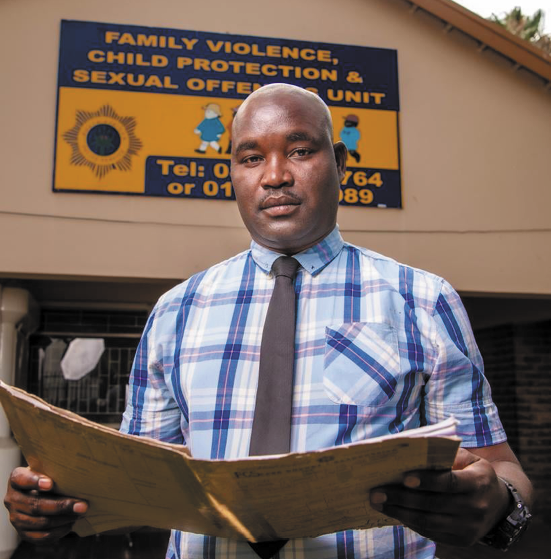Sergeant Ishmael Matjeka (36), of the Serial and Electronic Crime Investigations (SECI) unit in Limpopo, has made a name for himself for helping put serial rapists behind bars. 
Matjeka collects evidence, interviews witnesses, follows up on any information related to the cases he is working on. He also submits a report that the prosecutor will need to find rapists and often himself testifies in court during
The SECI is a provincial policing unit that falls under the Family Violence, Child Protection and Sexual Offences (FCS) unit of the South African Police Service.
Matjeka has been a police officer for 11 years. He has helped put at least 19 serial rapists behind bars for life. The first one was during his time at the Groblersdal SAPS’s FCS unit. The other 18 convictions were during his time at the SECI.
He has done this by using DNA, forensic evidence and by putting together thorough reports for the prosecutors.
DNA, which is found in the body, carries all the information about how a living thing will look and function.
“Every time a victim comes to report a rape, the lab collects DNA samples, which it puts on file. If the DNA is identical to other samples they have on file, then it is known that a serial rapist is operating in the area. Once the lab notices this pattern, the case is passed on to us at the SECI.”
Matjeka is currently working on 39 cases related to gender-based violence (GBV).
What to do if you are raped
Matjeka advises a rape survivor to immediately go to the nearest police station to report rape. He says that the person must not take a bath, which might destroy DNA evidence. In addition, they must take along the clothes they were wearing, because these too can provide crucial evidence.
He says rape survivors should be given priority at police stations and will be assisted by an officer trained in assisting GBV survivors.
If a victim is able to give a statement before receiving medical treatment, this will be done before the victim is taken to hospital by the police, for a doctor’s examination.
The evidence collected during the examination is put in the sexual assault evidence collection kit, to be tested and analysed at a lab, says Matjeka.
He urges the police and community to work together to solve GBV cases.
“I urge men and women to not only speak out, but act, against GBV by reporting it to the police before lives are lost,” says Matjeka.
To report a rape, call 10111, or visit your nearest police station.



 Facebook
Facebook Twitter
Twitter WhatsApp
WhatsApp